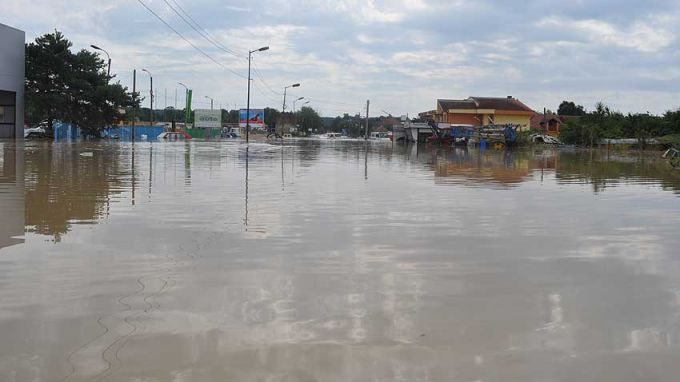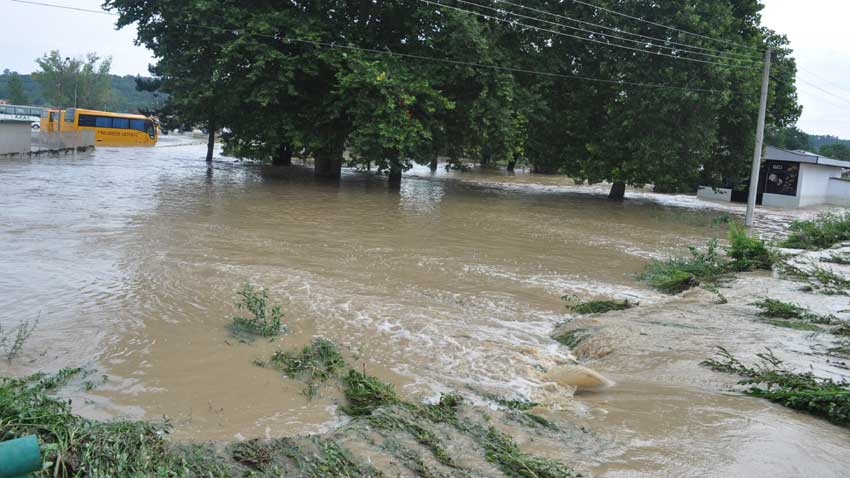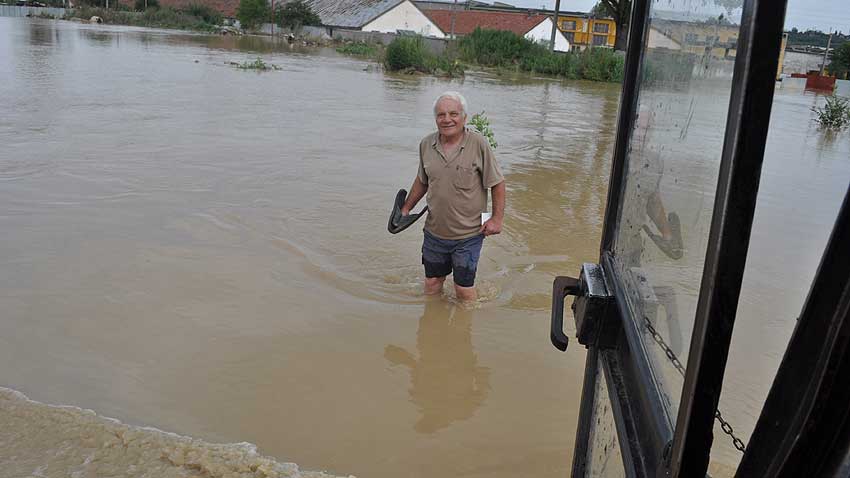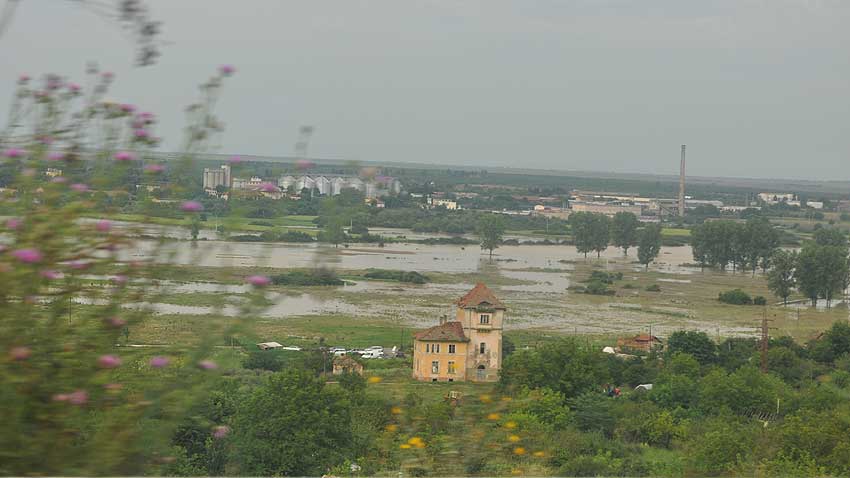 9
9
Despair, wrath and grief – this is the mood pending over the flood stricken town of Byala Slatina, northwestern Bulgaria. In the sunny Friday afternoon of August 1, a wave of water came as if out of the blue, took the town by surprise and in less than half an hour swallowed streets, houses and shops. . . Electricity was cut. The Skat River, otherwise calm tributary of the Danube, went practically crazy, bringing harm all over the place.

During the night preceding the flood, Byala Slatina was soaked by 86 liters per square meter of rain. This is 1.5 times more than the usual amount of rainfalls for July. However, no one expected the Niagara-like wall of water would cause a disaster. The tide swept the town unexpectedly, reaching 1.80 meters at some points, covering the bus terminal, the streets, the bridge over the river itself and basements, sucking in furniture and household devices and tossing cars around like matchboxes. People were escaping the tide anyway they could. Some managed to sneak out of their cars’ windows or climbed on the roods of their houses, expecting help. Others were drawn into the muddy waters of the raging Skat River and only just swam to firm ground.

“The tide hit me from behind while I was unloading goods for my shop, and washed me two meters away”, tells a petrified saleswoman from a local grocery. By Friday night about 250 people were evacuated with heavy machinery and boats. Their property, however, sunk underwater. Similar to other places in Northwest Bulgaria, Byala Slatina was cut off the world. By noon the next day the water had hardly withdrawn. A rumor run around that a second tide wave was coming. “In the flooded areas bandits are said to be pillaging the houses. Who is to protect my property?” a young woman, a child in her hands, was crying, trying to break the police line and reach her house. People were angry, accusing local authorities of inaction and incompetence.

No one knew where the monstrous mass of water came from. “Shame on them, they are letting out dams without warning!” people were shouting angrily. Others, wasting no time, rushed to help around. While the servicemen of the civil defense were touring the river-like streets, some people remained on the roofs of the homes. Byala Slatina remained isolated on Sunday, too. “And what about the inhabitants of the town of Mizia, which is only 30 kilometers away! There the tide has covered one third of the town! Poor people!” a woman, owner of a flooded motel was exclaiming compassionately.

Today, however, access to Byala Slatina is open. Water is gradually withdrawing. Electricity and drinking water supplies are resumed, just like hopes that such evil would never strike the inhabitants of the poorest region in the EU again. Now people are expecting solidarity and cooperation on the part of local authorities and EU institutions. This is the only way they would be able to swim out of this nightmare of a water trap. While weather forecasts for the current week predict more and more rains. . .
Photos: Veneta Nikolova‘In my view, the period between Bulgaria’s liberation and 1944 was especially significant because I believe that the country was then on the right developmental path,’ says collector Filip Milanov. ‘That era produced many people of exceptional integrity..
The village of Hotantsa, near the Danube city of Ruse, is hosting the Hotantsa Sarma Festival , a celebration of Bulgaria’s culinary and folk heritage. Organised by the local cultural and community centre ( chitalishte ) Svetlina-1928 , the festival..
He does not accept the definition of "apostle" or "missionary", although for many he is exactly that - a messenger of God in the world, proclaiming His Word. He first became a priest in his native Vidin diocese, in Northwestern..
The first museum of investment gold is welcoming visitors in Plovdiv who want to learn more about the history of money and its connection to gold – from..
On 16 November, we celebrate Caritas Day, when we honour the Catholic Church’s charity organisation that brings hope to those in need through care and..
This year, Christmas has "arrived" in Sofia as early as November with the aroma of mulled wine, cinnamon and festive magic. Radio Bulgaria recommends that..

+359 2 9336 661
